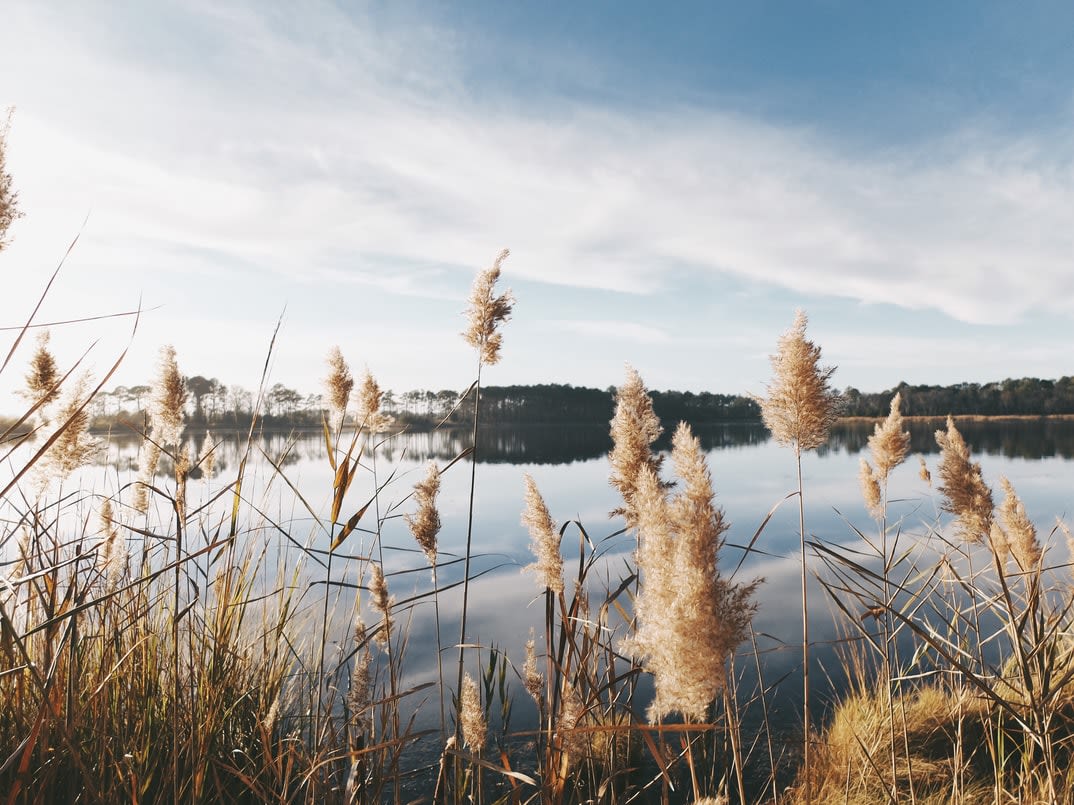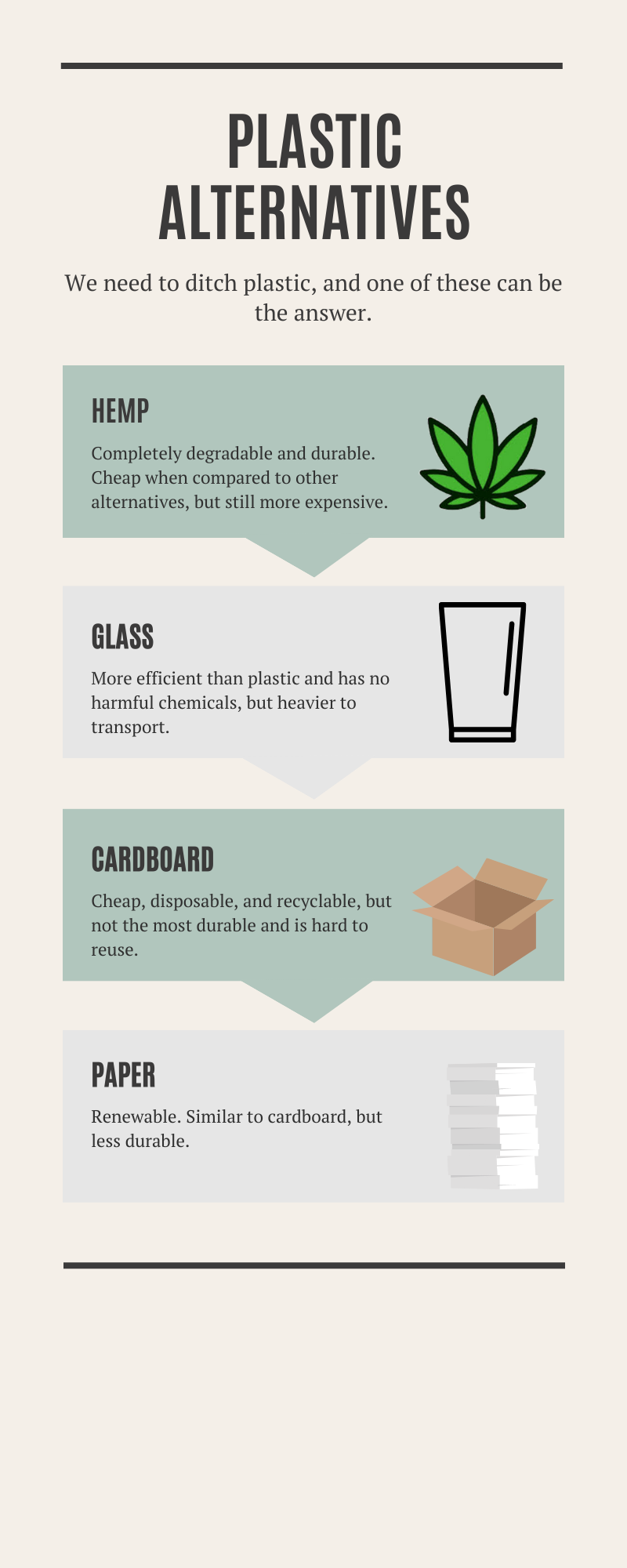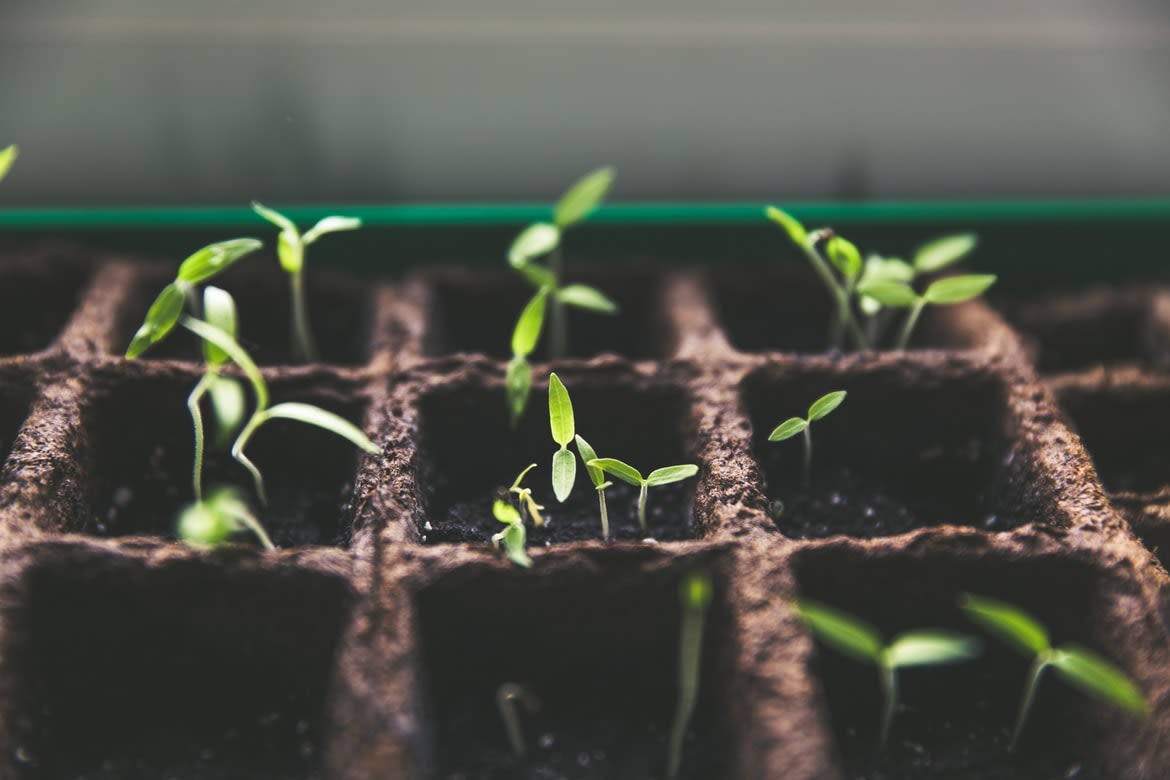Plastic Pollution
The Crisis We're Overlooking
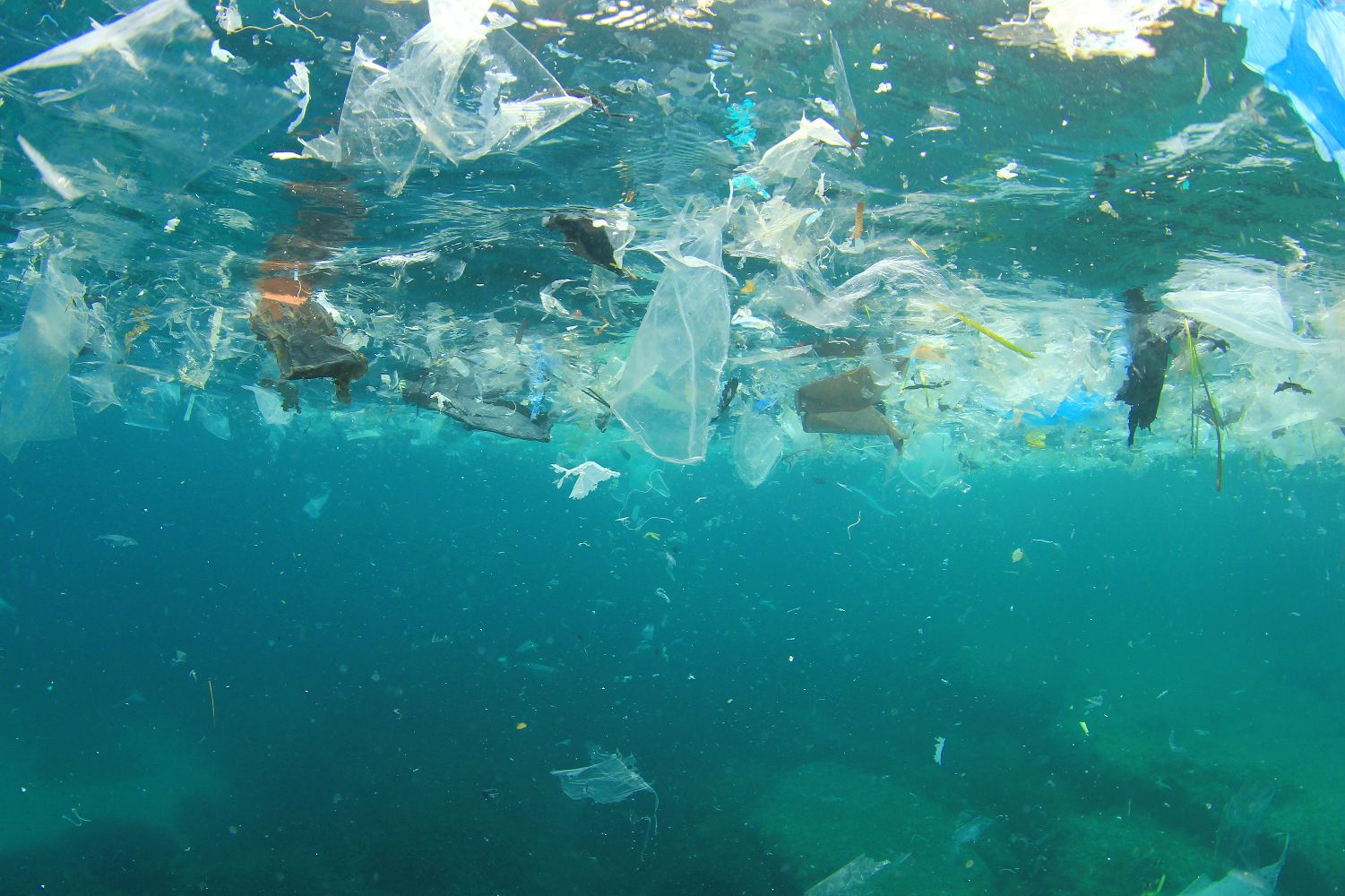
There is Plastic Accumulating in Your Body. Right Now.
Scientists, after examining 47 samples of human organ tissue, discovered microplastics in all 47 samples
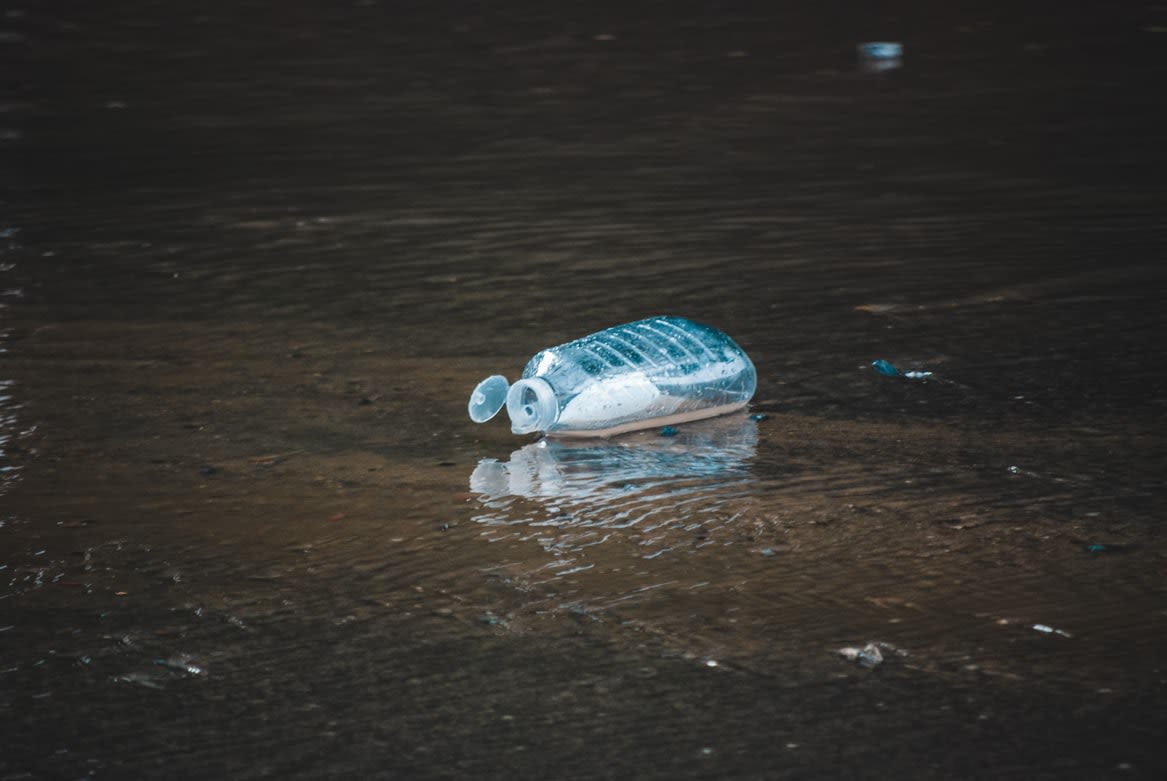
Plastic is Constantly Finding its Way Into Our Bodies
Every 6 months, we consume about a cereal bowl's worth of plastic. You consume plastic every single time you eat food that has been manufactured or packaged using plastic materials, which likely means most, if not all of your diet.
Harmful plastic finds its way into our food at every step of the process. Food is exposed to harmful chemicals in the manufacturing process and they continue to leak into the food during the packaging process and, eventually, your digestive system.
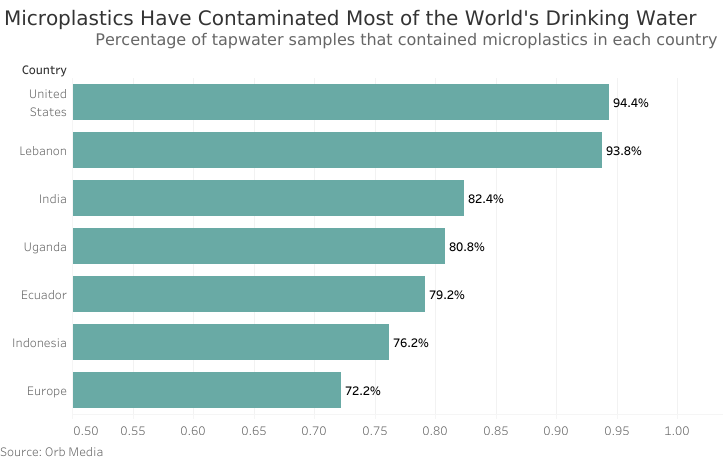
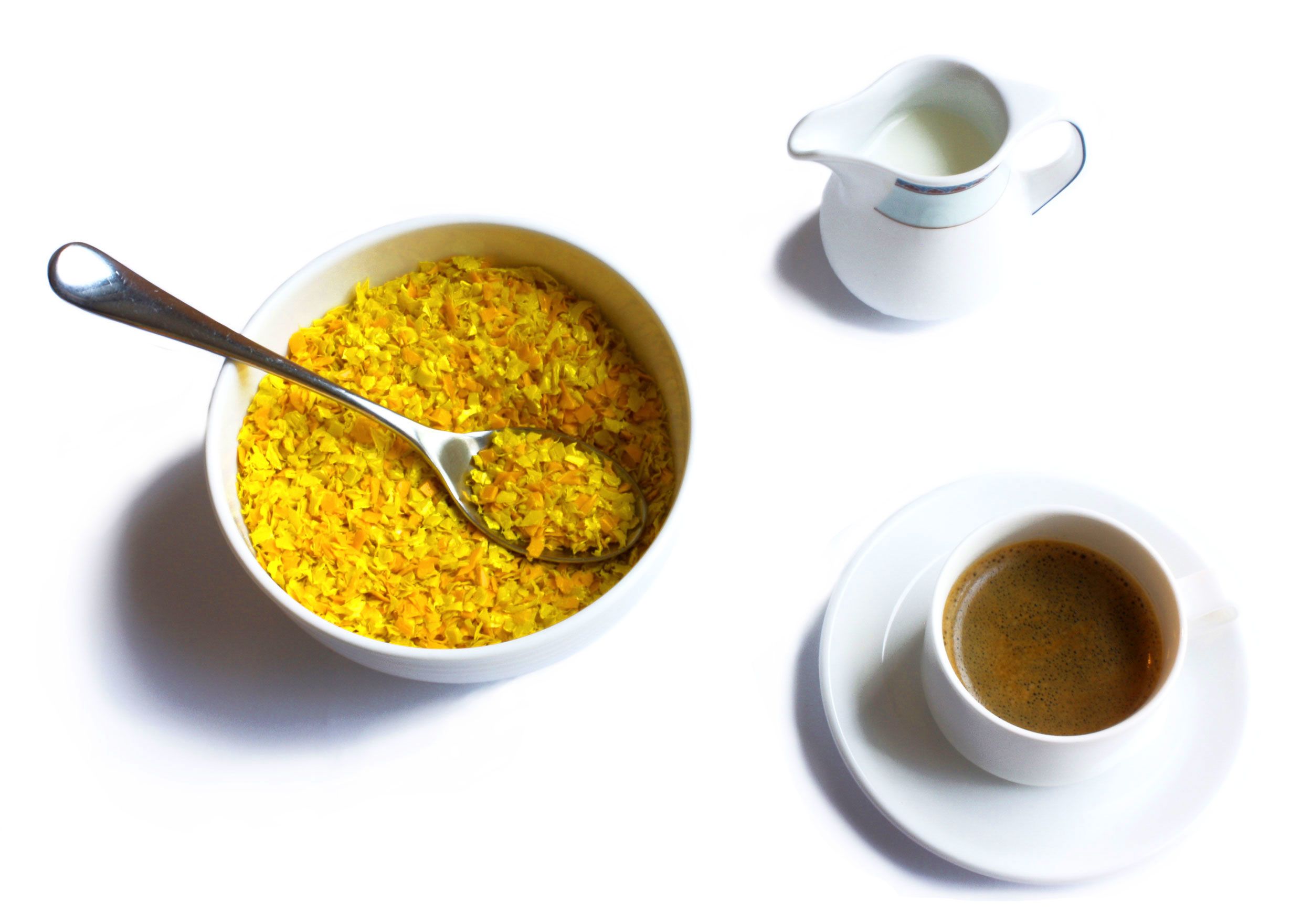
Cereal Bowl Full of Plastic- From Reuters
Cereal Bowl Full of Plastic- From Reuters
Even past just the packaging of our food, microplastics have contaminated the taps in our homes. On every continent, microplastics were found in most sources of drinking water. Leading the charge here is the United States, where microplastics have found their way into almost all samples of tap water examined.
Plastic Accumulation can Cause Adverse Health Effects
Unnervingly, there's a small amount of data regarding what plastic does to us long-term. Here's what we do know, though. Plastic can contribute to:
- Cancer
- Birth Defects
- Developmental Defects
- Reproductive Defects
- Endocrine Disruption
This prevalence of microplastics is a crisis. Right now, plastic may actually be causing male fertility rates to fall. As plastics become more present in our ecosystem, sperm counts begin to lower. Unfortunately, we are creating plastics at higher and higher rates every year with no end in sight. If this problem continues scaling, this may be one of the biggest issues in the fight for sustainability.
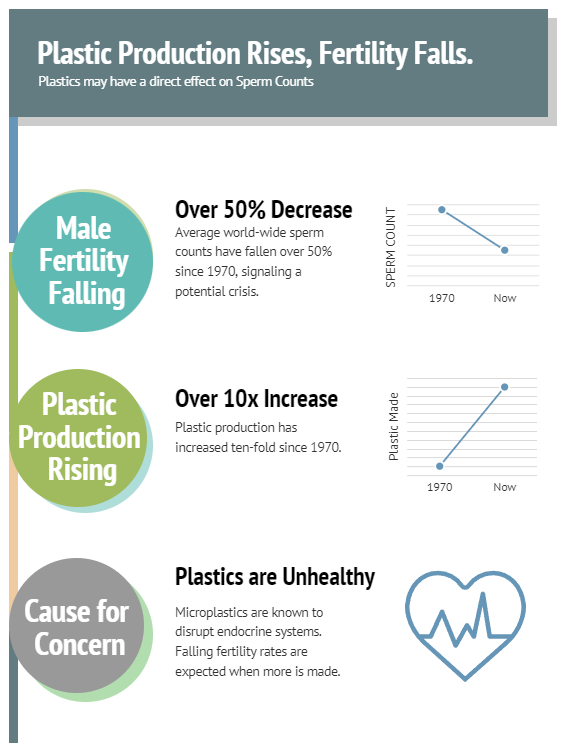
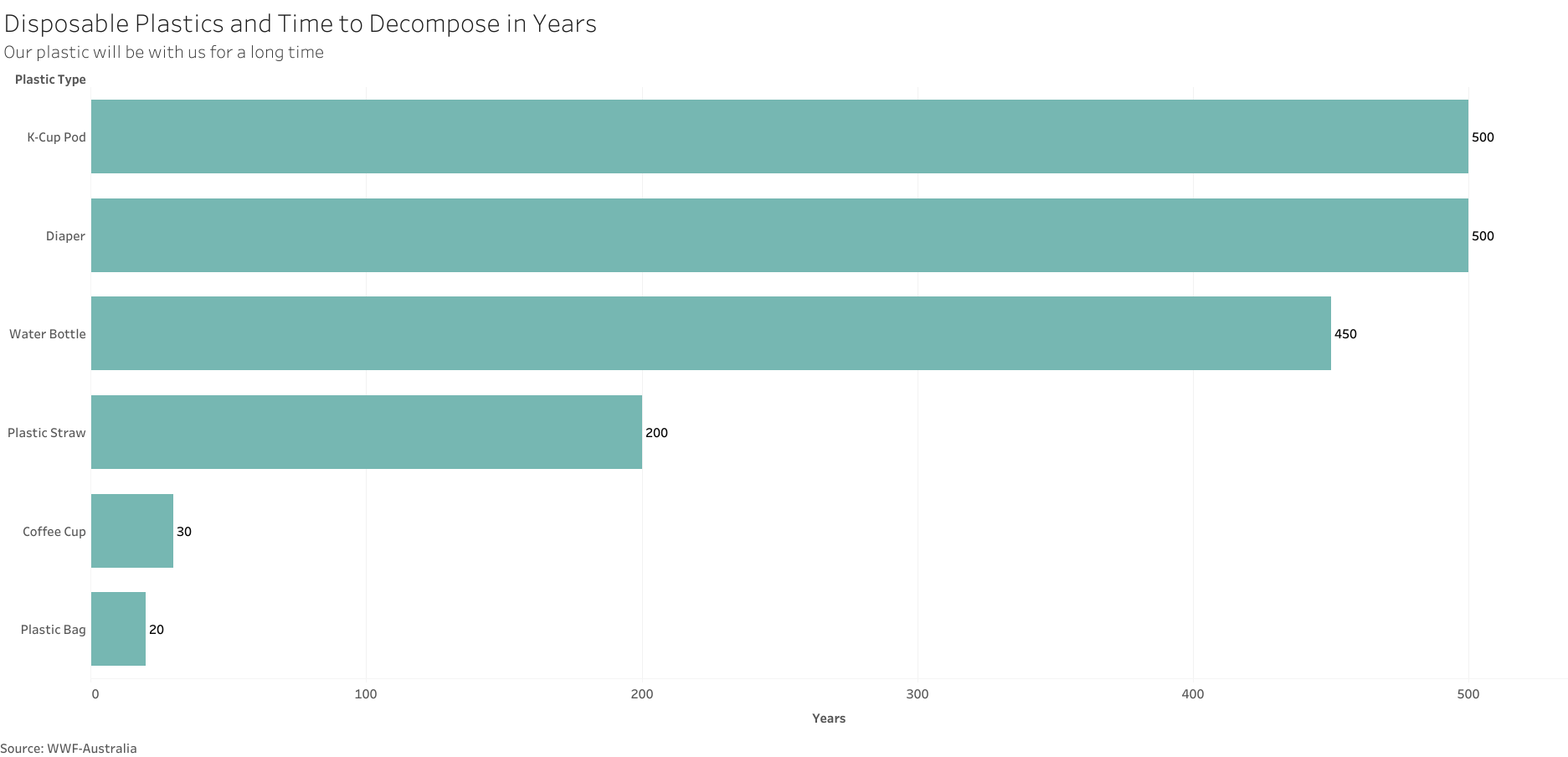
Our plastic problem won't be going away anytime soon. Some of the plastics we use every day, such as K-Cups and Diapers, won't biodegrade for 500 years after their creation.
Some things that happened around 500 years ago- the time it takes for K-Cups to biodegrade:
1492- Christopher Columbus Reaches the Americas
1517- Protestant Reformation Begins with Martin Luther
1521- Henry VIII Reigns as King of England
The plastic we use will be around for a long, long, time. Assuming the average age between generations as 25, some of your plastic waste will still need to be dealt with by your great-great-great-great-great-great-great-great-great-great-great-great-great-great-great-great-great-grandchildren. (19 generations!)
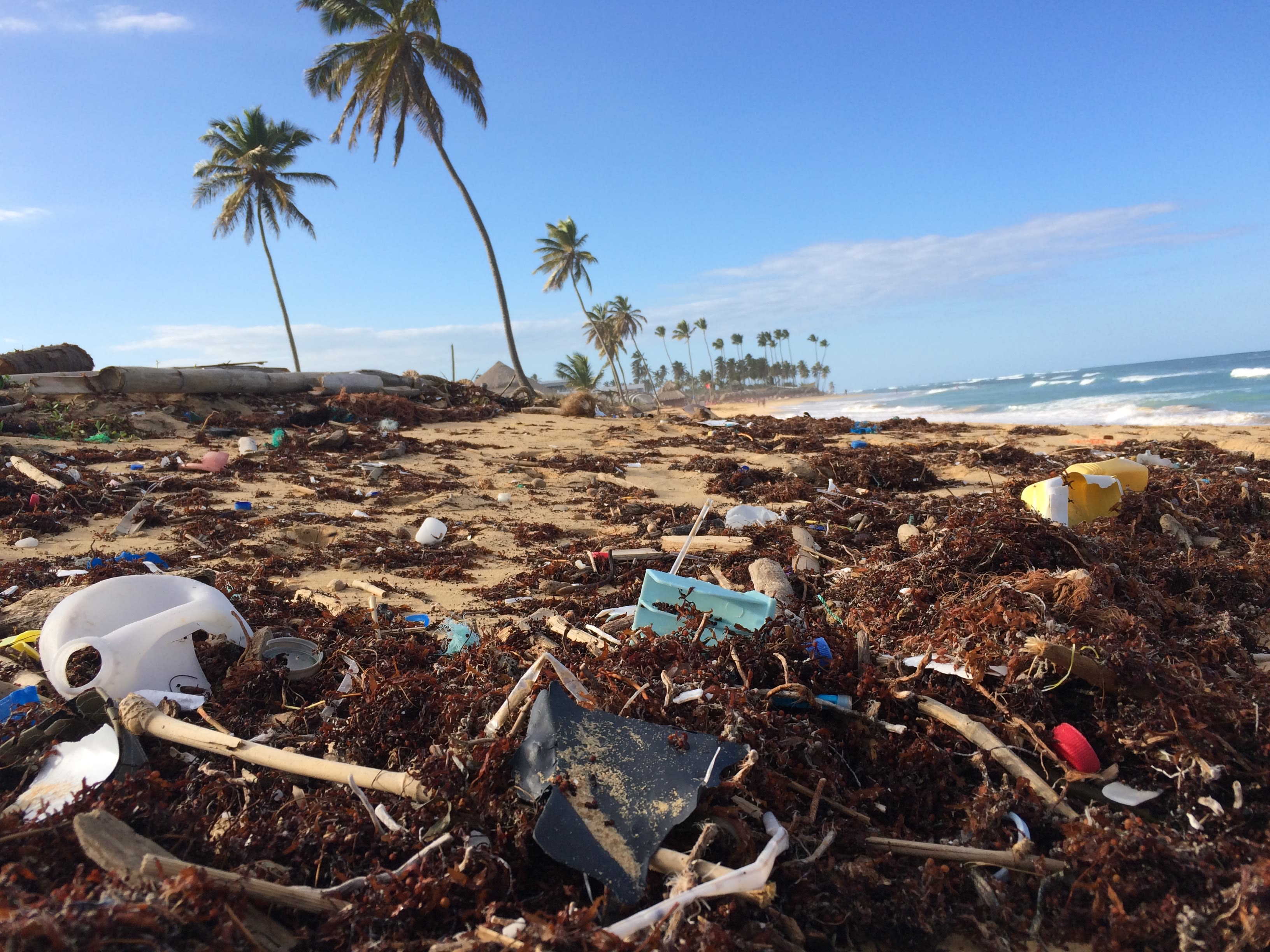
Drowning in Plastic
The world isn't taking this crisis seriously. Plastic production is increasing almost every single year. As per the graphic, the only years that plastic production fell were years in which there were large economic recessions (1974 and 2007). As recently as 2015, plastic production has been increasing rapidly every single year as overall consumption increases in the global economy. There's no end in sight to our plastic production. Quite simply- the more plastic we produce, the worse this crisis will become.
Most of the plastics produced can be blamed on a select few industries. First and foremost, packaging produces far and away the most plastic. Following close are textiles, HDPE plastics, and various consumer products. Finding sustainable alternatives for these industries will be crucial to actually solve the issue of plastic pollution. Knowing what industries are the biggest culprits will help us know where to dedicate resources to get rid of plastic.
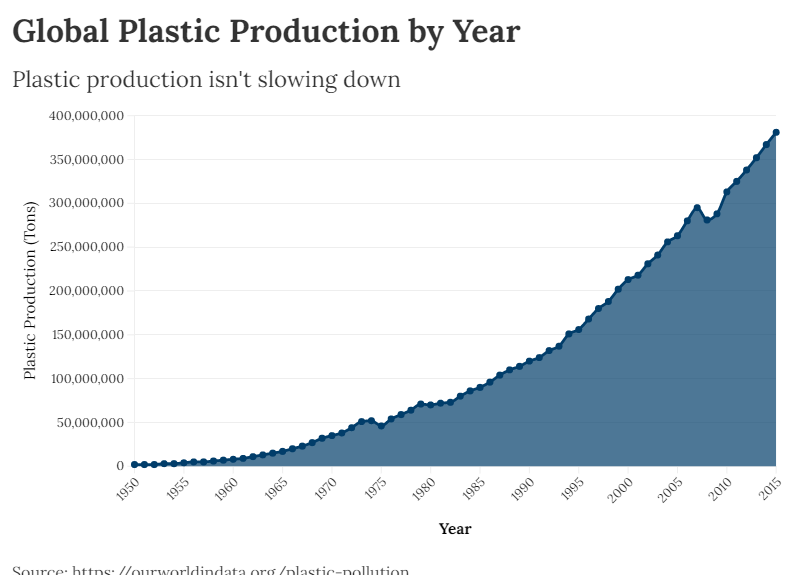
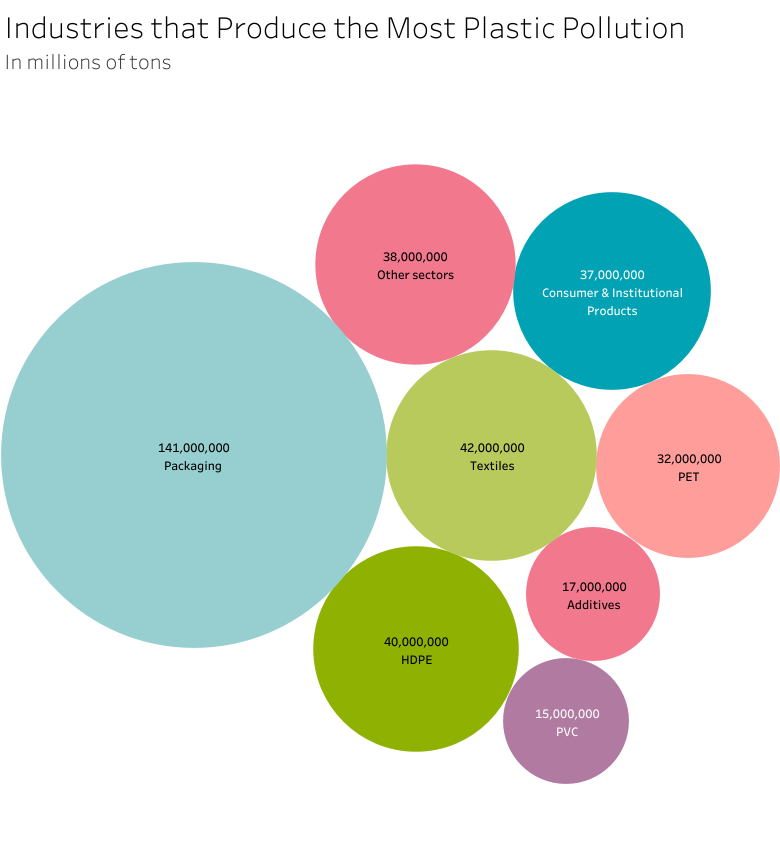
Data from OurWorldinData.com
Data from OurWorldinData.com
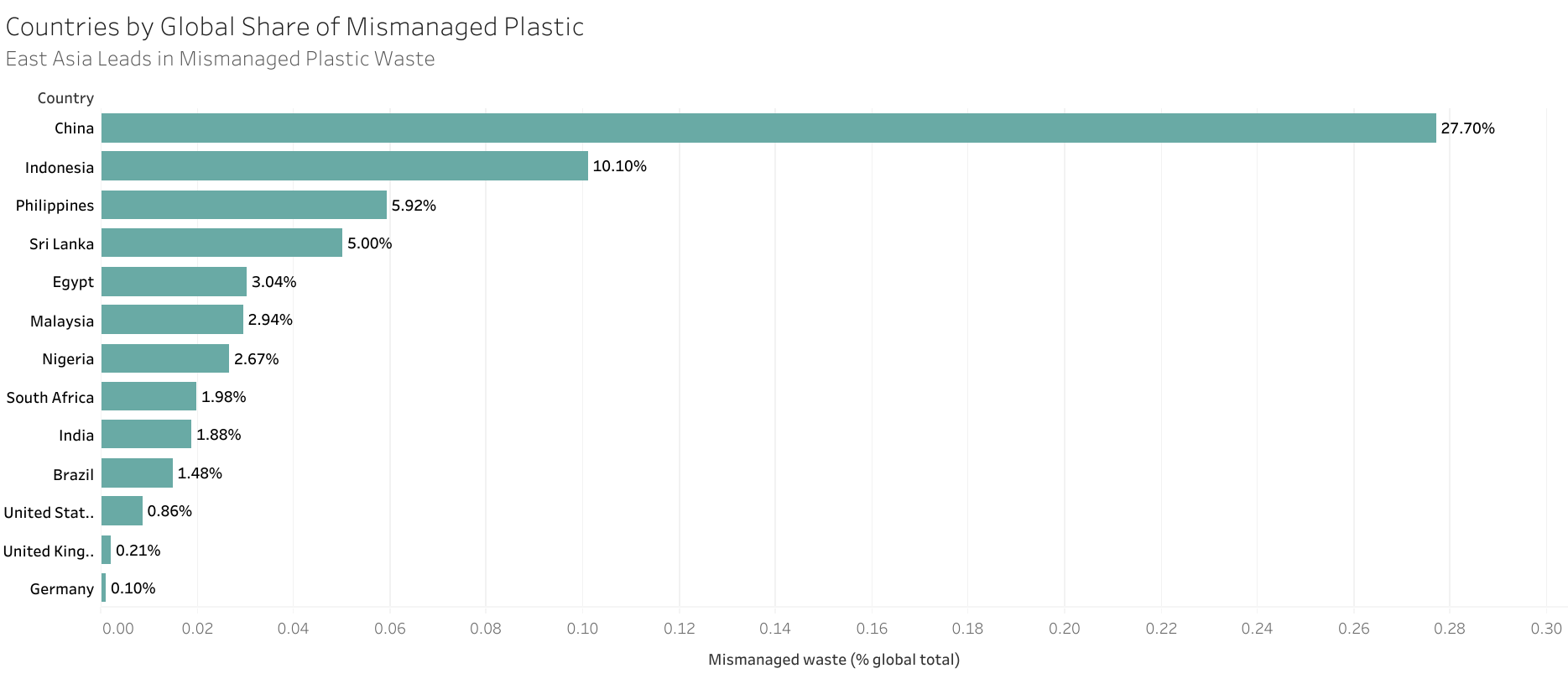
The amount of plastic waste isn't the only battle. Plastics, as they decompose, leak harmful chemicals that enter the environment. This is a primary issue even in landfills, let along when plastic is mismanaged at such high levels. Large countries, especially in Southeast Asia, have a hard time ensuring their plastic even makes it to the landfill. These countries are causing massive harm to the world and are the primary places that need to focus on their plastic management.
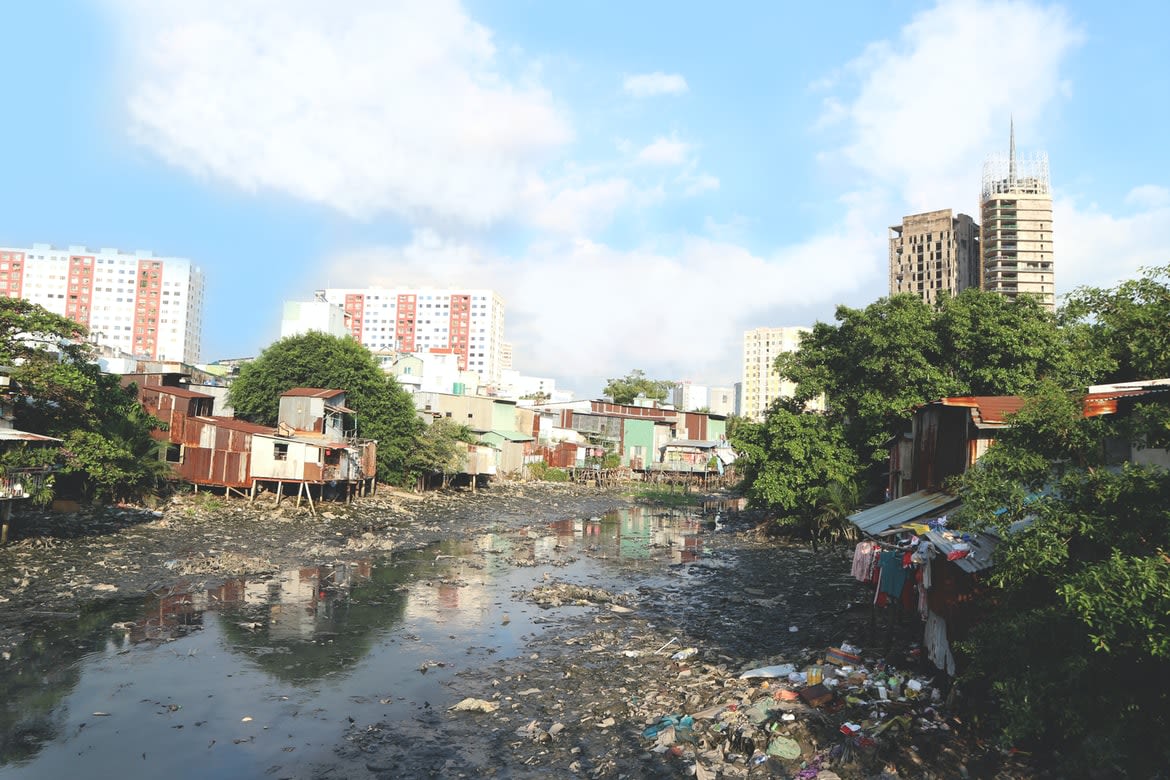
A Roadmap to Success
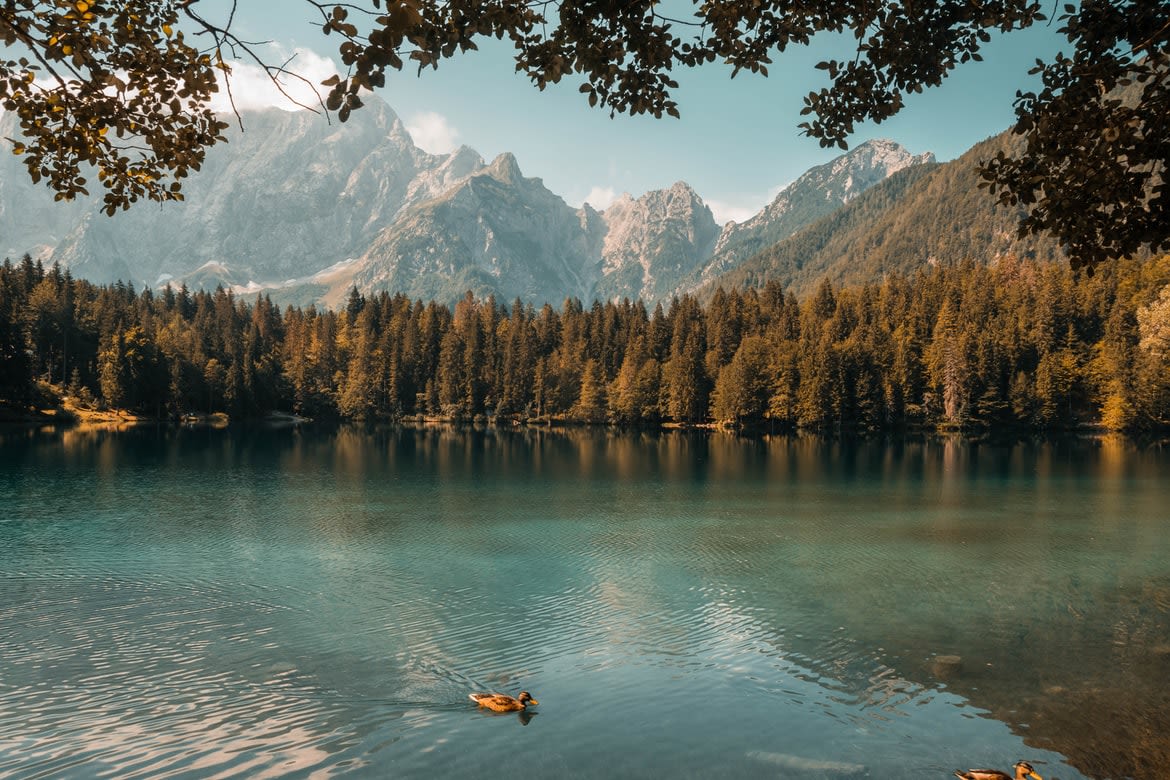
Actions You Can Take-
- Avoid Disposable Plastics
- Invest in Alternative Materials
- Dispose of Plastic Properly- Don't Litter
- Donate to Nonprofits Focused on Fighting Plastic Pollution
Most Importantly, Avoid Plastic!
